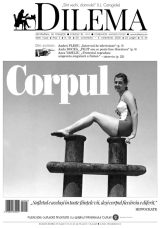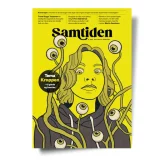Knut Olav Åmås
is a Norwegian writer, journalist and editor. Since 16 October 2013, he is part of the Norwegian government as State Secretary in the Ministry of Culture.
From 2006 debate editor and from 2008 editor of culture and debate and opinion at Aftenposten, Norway’s leading daily. He has published several books on philosophy, the history of thought, biography and gender studies. He was the editor of Samtiden, Scandinavia’s oldest cultural and political journal, from 2001 to 2006. From 2005 to 2013 he was a member of the Eurozine Advisory Board.
Articles
Norway’s prime minister Jens Stoltenberg seems to have spoken for most of his countrymen when, responding to the attacks of 22 July, he said that “the Norwegian response to violence is more democracy, more openness and greater political participation”. But this quiet call of defiance has been accompanied by severe critique of the harsh tone of public debate, especially on the Internet. Illiberal and intolerant opinions echoing those held by terrorist Anders Behring Breivik thrive on blogs and online forums, but also in the commentary fields of mainstream media. Knut Olav Åmås, culture and op-ed editor at Aftenposten, joins in the call for “more debate” – even if it is repellent and offensive. Conflicts in society must remain visible. That also goes for sensitive issues such as integration and multiculturalism.
Weininger's Vienna
Allan Janik talks to Knut Olav Åmås
No figure could be further removed from the intellectual taste of our time than the Austrian plilospher Weininger: Branded as a misogynist and a self-hating anti-Semite, he remains nonetheless an important intellectual philosophical figure who needs to be re-contextualized into the fin-de siècle cultural and intellectual landscape of Vienna, argues Allen Janik, author of the influential book Wittgensteins Vienna.
Culture and gender in neo-conservative America
Richard Goldstein talks to Knut Olav Åmås
How far has America really come when it comes to gay rights and gender equality? Richard Goldstein, editor of the influential Village Voice believes that a social backlash in neo-Conservative America is forcing women back into traditional notions of feminity and is provoking new forms of accepted homophobia.
Mediekritikk er medienes ansvar
Arne Ruth i samtale med Knut Olav Åmås
I norsk presse er det den kollektive tolkningen av verden som har vunnet, sier Arne Ruth i en samtale med Knut Olav Åmås. Den kompakte, kollegiale samstemtheten er et alvorlig problem for mediekritikken. Massemediene må lære seg å bli vant til å bli kikket i kortene, og å få sin utøvelse av makt gransket virkelig kritisk.

